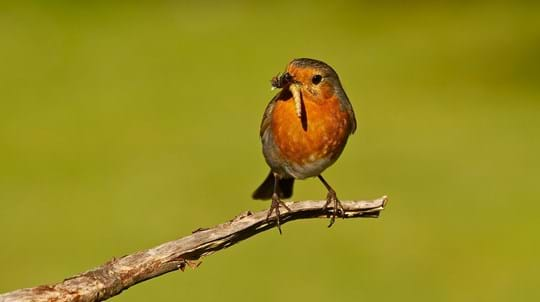
Blog
How to attract robins to your garden
James Martin • 27 Jan 2020

Content editor
Climate change is at the front of our minds, and kids are feeling empowered to make a real impact on the future of our planet. Young people are naturally curious so this is a great time to get the whole family involved, to build good habits to save the nature we love.
Nature conservation means protecting our environment and the wildlife that lives in it. It includes looking after biodiversity and the health of the planet. There are lots of simple ways that kids can get involved in conservation and start helping the areas and species under threat.
Our native trees and woods are some of the habitats we need to protect. Trees clean our air by absorbing things that pollute the atmosphere. Woods provide a habitat for all sorts of wildlife too, and they're great places for us to have fun and relax in.
As a family, you can get involved in our campaigns to save threatened woods and trees. You could also make sure your school is part of our Green Trees Schools Award, and have claimed their free trees to plant in their school grounds.
You could even buy trees to plant in your own garden.
Tread carefully in the woods and countryside. Keep to paths so you don't trample on delicate plants. Use natural items you find on the ground for your crafts and games - don't pick them from plants and trees.
Walk or cycle to school if you live close enough and use public transport whenever you can rather than going by car. This will help cut down the air pollution caused by traffic.
Recycle as much as you can. Make sure to follow local instructions when you sort your recycling and remember to wash off remains of food first.
Cut back on plastic. Some types of plastic can't be recycled, and plastic isn't biodegradable - that means it doesn't break down naturally like food and paper.
Here are a few ways you can help:
Many wildlife species are in danger because of things like pollution, climate change, and loss of habitat. But you can give them a helping hand.
Provide extra food for the creatures that visit your garden by making a bird feeder or a butterfly feeder.
It's also a good idea to let a bit of your garden grow wild so they have somewhere to hide. You could even build a frog pond to help amphibians, or a hedgehog home for our spiky mammal friends.
Natural resources include water, and things like gas, oil and coal from the ground that we use to make electricity and fuel for heating and transport. Processing these things to make the energy we need causes pollution, and cleaning water uses up power too. That's why we should be careful not to waste them.
Save water by having showers instead of baths, don’t leave the tap running when you’re brushing your teeth and make sure you turn off taps properly so they're not dripping.
Save electricity by turning off lights when you don't need them and not leaving things like the TV on when no one's watching it. Teach your little ones to not leave gadgets on standby, it wastes energy.
By becoming a family member, you would not only be inspiring a love for the environment with seasonal packs for your kids, you’ll also be supporting our work to protect trees, woods and the wildlife that relies on them.

With family membership you can learn about nature together, while helping to protect trees, woods and wildlife.
Join as a family today